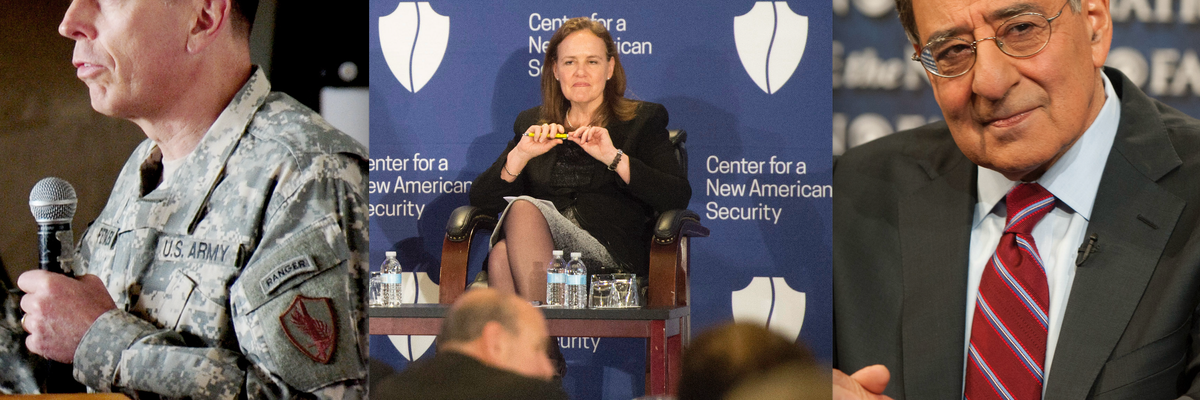Jeremy Scahill of The Intercept has a good piece responding to a letter published today by Michèle Flournoy, Leon Panetta, General David Petraeus, Dennis Ross and a few others, urging Joe Biden to break the nuclear deadlock with Iran by issuing military threats.
I am quoted extensively in the piece. I am including my quotes below, while also adding a few additional thoughts. Here’s what I told Jeremy:
The exaggerated faith in the miracles that U.S. military threats can deliver is not limited to any one party in the United States but is intrinsic to the establishment religion that American security is achieved through global military hegemony.
Rather than being the solution to the crisis, the military threat the U.S. poses to Iran is a key reason why the Iranian nuclear program has expanded. The more a country is faced with military threats, the more it will demand a nuclear deterrence.
Donald Trump’s military threats and broad economic sanctions are precisely why we are in this mess right now. To believe that more Trumpian conduct by the United States will break the nuclear deadlock bewilders the mind.
Trump’s exit from the deal and the lack of confidence that the United States will stay in the deal beyond 2024 has profoundly undermined the value of American promises of sanctions relief. The Iranians are hesitating largely because they do not believe that the economic benefits the U.S. promises will be forthcoming. No amount of military threats will change that fundamental weakness in the U.S. negotiating position.
Having said that, I do believe — as I hinted at in my recent piece for MSNBC — that the fear of war was an important factor for the parties getting serious about diplomacy in 2013. Both the United States and Iran believed that war would be the outcome if talks failed. This helped sharpen the choices of both sides and helped muster political will — again, on both sides — that enabled the compromises manifested in the JCPOA.
But here’s the difference from what Petraeus et al are calling for: Obama didn’t issue any military threats. Rather, the structure of the situation was such that it was clear to all that war was the likely alternative to a deal.
Today, as I explain for MSNBC, the structure is different. Issuing (empty) threats will not change that. It will only make diplomacy more difficult.
So, shouldn’t the situation be changed so that the parties once again have no choice but to muster the necessary political will?
No, it should not for a very simple reason: We got lucky last time. It could just as easily have ended in a disastrous war.
Neither side can control the situation. De-escalatory options are imprecise and unpredictable, to the extent that they even exist. The idea that we can dial things up and down at will without the other side having a say, without factoring in the risk of the other side miscalculating, is simply irresponsible.
We should not constantly lower our expectations of leaders and diplomats. It is fundamentally reasonable to expect that leaders on both sides can and should muster the courage to strike a reasonable compromise without a disastrous war hanging over the heads of the American people and the peoples of the Middle East.
















